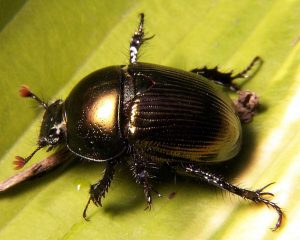Organic farming with more biodiversity lowers food safety risks
 Photo credit: Bruce Marlin
Photo credit: Bruce Marlin
A recent article published in the Journal of Applied Ecology shows that contrary to popular perception, increased biodiversity on the farm can actually reduce risks of food-borne pathogens, and organic farming is the ticket to increasing the right kinds of insects and bacteria to suppress those pathogens. While it has been shown in countless studies that increasing biodiversity on the farm results in benefits to important ecosystem functions like pollination, pest control and soil health, food safety has been perceived to be an exception to the rule. It has been thought that increasing biodiversity on a farm will attract wildlife that spreads the risk of contamination by food-borne pathogens such as E. coli. This perception has caused fear-based management including removal of natural habitat to deter wildlife on farms. Recent evidence shows this practice actually results in more risk of food safety issues.
This study confirms that more diversity on the farm reduces the risk of food-borne pathogens, and this happens in an interesting way. When there is more above-ground diversity by means of different kinds of vegetation and crops, more dung beetles are attracted to the farm. The higher abundance of these beetles means that more wildlife feces is consumed and therefore E. coli occurrences are suppressed. Organic farms were found to host more dung beetles above ground and more underground bacteria that also help suppress pathogens. This study adds to the growing body of literature that suggests organic farming, which supports more biodiversity, can be safer when it comes to food-borne illness outbreaks.


